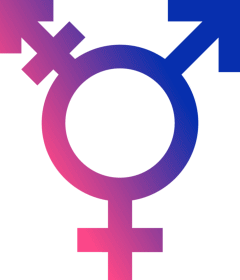Trans* people and abortion
National Review reports:
Feminists are now arguing about whether or not it’s offensive to talk about abortion as a “women’s issue” because gender is not that simple and men have abortions too.
National Review’s attitude about the matter is rather sarcastic. For example:
At the risk of being branded a “cissexist,” feminist essayist and poet Katha Pollitt wrote a piece for the The Nation today daring to suggest that maybe it’s not totally offensive to link being pregnant with being female.
It would be a huge mistake for pro-lifers to adopt that sarcastic attitude.
As far as population demographics are concerned, the overwhelming majority of people who consider abortion are going to be straight cis women. That’s a given. But that doesn’t mean we should ignore the minority. If we are committed to saving every child we can, we need to reach out to all families experiencing crisis pregnancies and tailor solutions to meet their circumstances. Those circumstances may include issues of gender identity and sexual orientation.
In fact, when I got involved in the pro-life movement as a college student, one of the first pro-life speakers I ever heard was a lesbian. As a teenager several decades ago, she felt under enormous pressure to deny her lesbianism and “act straight.” An unplanned pregnancy resulted.
Of course, to be a lesbian and to be trans* are two different things. But I bring it up because, in both cases, the pro-life movement’s failure to recognize a world beyond binary heterosexuality can prevent us from effectively serving those in need.
I actually think inclusion of trans* people is not as radical a step for the pro-life movement as it is for the pro-choice movement.
Hear me out. I realize that the pro-life movement has traditionally been associated with social conservatism. I’m not an idiot. But I also see that among my Millennial pro-life cohort, acceptance of trans* people is commonplace. As with same-sex marriage, it’s a generational difference more than a political one.
Critically, the pro-life movement has a long tradition of viewing abortion through a broad lens, and that’s a tradition that isn’t going anywhere. For us, it has never been merely a “women’s issue,” as Katha Pollitt would like it to be. We have traditionally been concerned about how abortion affects men (particularly fathers), other family members, and the whole community. Obviously we have been concerned about abortion’s effect on the child, a concern which has never been limited to children of a particular gender. (No self-respecting pro-lifer would refuse to save an unborn child because an ultrasound revealed an intersex condition, for example.) In short, the pro-life movement is a human rights movement for all people. Why not trans* people?
By contrast, the abortion movement has political difficulties here, as Pollitt recognizes:
Restricting abortion is all about keeping women under the male thumb: controlling women’s sexual and reproductive capacities is what patriarchy is all about. Indeed, that women should decide for themselves is controversial even now. Although the Supreme Court ruled decades ago that men were not entitled to be notified if their wife was planning to end a pregnancy, some polls show large majorities of Americans believe husbands have a right to know. Once you start talking about “people,” not “women,” you lose what abortion means historically, symbolically and socially. It becomes hard to understand why it isn’t simply about the right to life of the “unborn.” After all, men get pregnant too!
Reading Pollitt’s piece, I got deja vu. The problem that pregnant trans* people pose for the abortion movement isn’t new; it’s the same problem that’s posed by the existence of pro-life women! It screws with their rhetoric of abortion as freedom from gender oppression. And given the lack of factual support for the pro-choice position (what’s with the scare quotes around “unborn”? As if they’re not real??), a threat to rhetoric is a serious threat.


Leave a Reply
Want to join the discussion?Feel free to contribute!